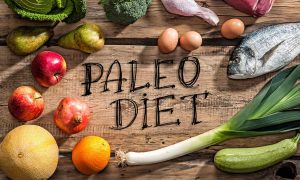8 Pros And Cons Of Intermittent Fasting Diets

|
|
Have you ever struggled with your weight, or simply your physique in general for that matter? Of course you have, we all have at some point or another, and if you say no, you should consider yourself one of the more fortunate people. Yes, when it comes to fat loss, and indeed muscle growth, or maintenance for that matter, the general consensus is that, getting your body where it needs to be, well, it kinda’ sucks. And by “kinda” we mean that it sucks big time. To build muscle, burn fat, increase strength levels, or anything else for that matter, people try all sorts of weird and wonderful diets, and whilst some have a certain degree of success, others are forced to throw in the towel after a while, as they simply cannot cope with the stress they’re putting their bodies through. If however, you’re looking for a slightly extreme diet protocol, that has been scientifically proven to strip away body fat and promote increases in lean muscle tissue, you may wish to learn more about intermittent fasting diets.
Intermittent fasting is basically a diet protocol which requires individuals to go through prolonged periods of fasting, in which they will eat virtually nothing (making sure to drink plenty of water) and then breaking their fasts during certain windows which permit the individual to eat. Some people will fast a few days per week, some people will fast for several hours each day, and some may even go to further extremes. Intermittent fasting has been proven to work, but it is not without its drawbacks. To help you decide whether or not it could be right for you, we’ll now be taking a look at several pros and cons associated with intermittent fasting.
Pros
To begin with, we’ll start on a light note and will look at the positive aspects associated with intermittent fasting diet protocols. Remember, these aren’t just opinions, these are hard scientific facts, backed up by years upon years of research and data carried out by the absolute best people in their respective fields.
It can alter your hormones in a good way

First off, one of the main reasons why intermittent fasting is so popular, not only with people looking to lose weight, but also with bodybuilders as well, is the fact that it has been proven to alter your hormones in a beneficial way internally. When you go through periods of fasting, your insulin levels will drop, which in turn will facilitate the metabolism of body fat. On top of that, HGH, or Human Growth Hormone levels, can also increase exponentially, by as much as 500% in fact. HGH has been proven to enhance muscle recovery, it enhances muscle growth, and it can even speed up fat loss. Your cells will also repair themselves and function more efficiently for a while. All of these hormonal changes will greatly benefit you, so when the time comes to eat and put some nutrients in your body, you will really be firing on all cylinders and will have created the perfect anabolic environment for optimal hypertrophy and fat loss.
Lose fat
Primarily this is the biggest reason why people follow intermittent fasting diet plans, and for very good reason as well. If you’re struggling to lose weight, whether you need a little off, or a lot off, intermittent fasting is ideal. You see, the premise is simple: you eat less, and therefore consume less calories. Ordinarily, you would eat, say, five times per day, including snacks, and often more than that, but with intermittent fasting, as you only eat at certain times, I.E between 5pm and 8pm each night, unless you go on an all-out binge, (which you should not do) you couldn’t possibly consume the equivalent of five meals and snacks in calories. As well as consuming fewer calories, your reduced insulin levels and increased HGH levels will also help to facilitate fat loss and speed up the metabolism, so you’ll be shedding those pounds in no time at all.
Beneficial for the body
As well as providing aesthetical benefits for the body, intermittent fasting has also been found to provide health benefits for the body, on an internal level. Studies have found that intermittent fasting can help to reduce oxidative stress and inflammation within the body, which is hugely beneficial. Oxidative stress, for example, can attack healthy cells and damage them, and potentially cause them to mutate into cancerous cells. Inflammation, as well as being responsible for chronic pain, is also responsible for a number of other very serious ailments, including hypertension, cardiovascular disease, stroke, and heart attack. Intermittent fasting however, increases the body’s immunity to the effects of oxidative stress and inflammation, helping to promote overall health and well-being.
Great for the brain
Finally, the last benefit associated with IF which we’ll be covering in this article, is the fact that IF is incredibly beneficial for the brain. Numerous metabolic processes within the body will be enhances via IF, many of which provide benefits to the brain as a result. Studies have found that new nerve cells will grow more effectively as a result of IF, plus, they have also revealed that a hormone known as BNDF, or, brain-derived neurotrophic factor, will also increase in a fasted environment, and it just so happens that this hormone is also very, very beneficial for the human brain.
Cons
Now that we’ve looked at the good, let’s now look at the not so good, as we look at the cons associated with intermittent fasting.
Can create an unhealthy relationship with food

When it comes to eating disorders, and weight loss in general, it is our psychological relationship with food that often plays a key role in what happens next. When you fast, you will be hungry, and if you’re at work, or around people eating food, it will look and smell very appealing to you, so from that point onwards, all you will be thinking about is food, how hungry you are, and how long until you get to eat next. This means that your work will suffer, or whatever else it is that you are doing, will also suffer because mentally, your judgement and thought processes will be clouded by thoughts of hunger and what you are going to eat when you break your fast. Overtime, this can create an unhealthy relationship with food which is not what anybody wants.
You will feel sick with hunger
There’s no way around it, if you are serious about IF, you must be willing to go through periods of extreme, and by extreme, we mean extreme, hunger, numerous times each week. Being hungry sucks, and we’ve all heard the jokes about being ‘Han-gry’ (angry with hunger) but for some people, that is true. It can make you irritable, it can affect your relationships, it can affect your concentration levels, and you will feel pretty awful, especially if you are new to IF. If you’re mentally strong and know you can deal with these side effects, then great, but if not, you may wish to simply try clean eating and more physical activity.
You may rely on stims
When hungry, you have no energy, you feel weak, and you struggle to function. This is why you feel so tired when you wake up in a morning. To counter this, many people drink coffee or other stimulants, which, occasionally are okay, but if you rely on them, this can cause all kinds of risks and dangers to your health. Many IF diet plans allow followers to consume caffeine, usually in the form of black coffee, but the problem is that, the better it makes you feel, the more your body will rely on it when you are feeling tired and weak, and this could lead to addiction. Not only that, caffeine also causes insomnia, upset stomachs, and other unpleasant side effects, especially in high dosages.
Cortisol levels could increase
Though the jury is still out on this one, there is evidence which suggests that IF diet plans could elevate cortisol levels, which is the last thing you want. Cortisol is a stress hormone that is responsible for a suppression of the metabolism, for the formation of spots and blemishes, for a drop in beneficial hormones such as HGH, plus it can cause trouble sleeping. When you miss meals, cortisol levels can increase, and metabolism levels can drop, meaning that you will have less energy, and you will also find it much tougher to lose weight as well, which obviously defeats the purpose of the diet in the first place.














